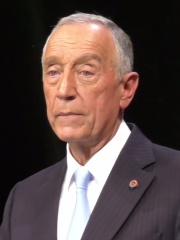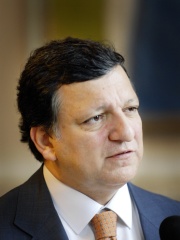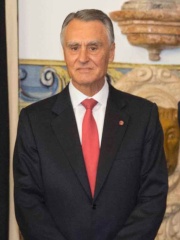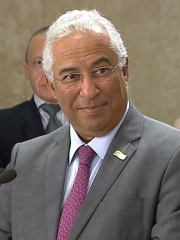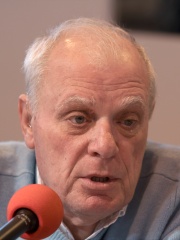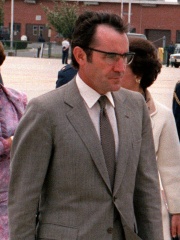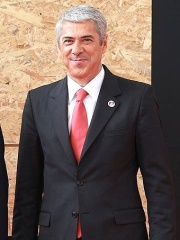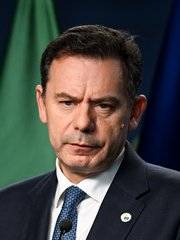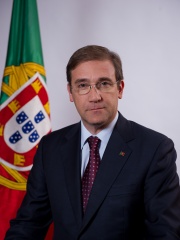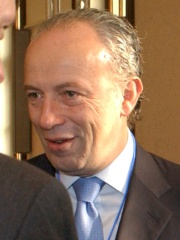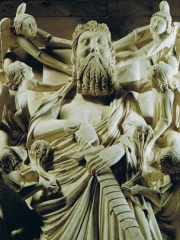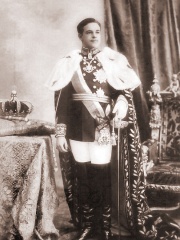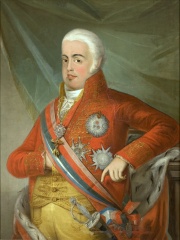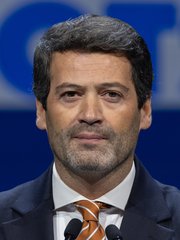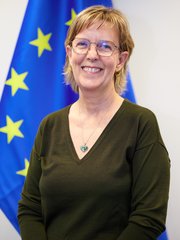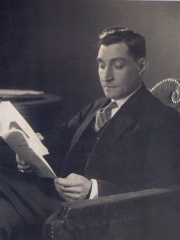
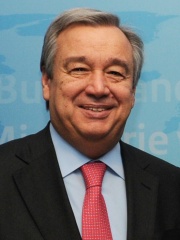
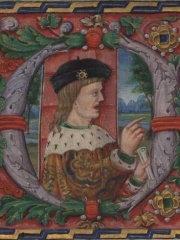
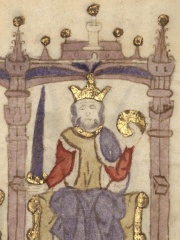
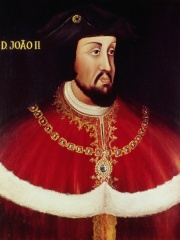
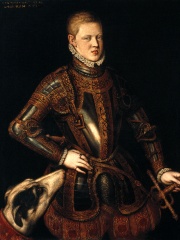
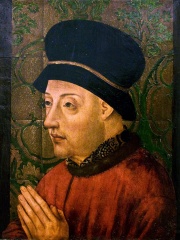
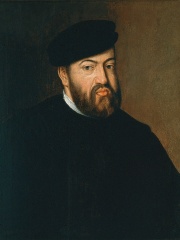
The Most Famous
POLITICIANS from Portugal
This page contains a list of the greatest Portuguese Politicians. The pantheon dataset contains 19,576 Politicians, 132 of which were born in Portugal. This makes Portugal the birth place of the 27th most number of Politicians behind Belgium, and Norway.
Top 10
The following people are considered by Pantheon to be the top 10 most legendary Portuguese Politicians of all time. This list of famous Portuguese Politicians is sorted by HPI (Historical Popularity Index), a metric that aggregates information on a biography's online popularity. Visit the rankings page to view the entire list of Portuguese Politicians.

1. António de Oliveira Salazar (1889 - 1970)
With an HPI of 81.59, António de Oliveira Salazar is the most famous Portuguese Politician. His biography has been translated into 84 different languages on wikipedia.
António de Oliveira Salazar (28 April 1889 – 27 July 1970) was a Portuguese dictator, academic, and economist who served as President of the Council of Ministers of Portugal from 1932 to 1968. Having come to power to maintain the Portuguese power, he reframed the regime as the corporatist Estado Novo ("New State"), with himself as nationalist. The regime he created lasted until 1974, making it one of the longest-lived authoritarian dictators in Europe. A political economy professor at the University of Coimbra, Salazar entered public life as finance minister with the support of President Óscar Carmona after the 28 May 1926 coup d'état. The military of 1926 saw themselves as the guardians of the nation in the wake of the instability and perceived failure of the First Republic, but they had no idea how to address the critical challenges of the hour. Armed with broad powers to restructure state finances, within one year Salazar balanced the budget and stabilised Portugal's currency, producing the first of many budgetary surpluses. Amidst a period when authoritarian regimes elsewhere in Europe were merging political power with militarism, with leaders adopting military titles and uniforms, Salazar enforced the strict separation of the armed forces from politics. Salazar's aim was the de-politicisation of society, rather than the mobilisation of the populace. Opposed to communism, socialism, syndicalism and liberalism, Salazar's rule was conservative, corporatist and Portuguese nationalist in nature; it was also opposed to capitalism, which it regarded as plutocratic in nature. Salazar distanced himself from Nazism and fascism, which he described as a "pagan Caesarism" that did not recognise legal, religious or moral limits. Throughout his life Salazar avoided populist rhetoric. He was generally opposed to the concept of political parties when, in 1930, he created the National Union. Salazar described and promoted the Union as a "non-party", and proclaimed that the National Union would be the antithesis of a political party. He promoted Catholicism but argued that the role of the Church was social, not political, and negotiated the Concordat of 1940 that kept the church at arm's length. One of the mottos of the Salazar regime was Deus, Pátria e Família ("God, Fatherland and Family"), although Catholicism was never the state religion. The doctrine of pluricontinentalism was the basis of Salazar's territorial policy, a conception of the Portuguese Empire as a unified state that spanned multiple continents. From the 1950s onward, during the later phase of Salazar’s rule, Portugal recorded sustained growth in GDP per capita and a decline in illiteracy, though by the end of the Estado Navo in 1974, Portugal still had the lowest per capita income and the lowest literacy rate in Western Europe. Salazar supported Francisco Franco in the Spanish Civil War and played a key role in keeping Portugal neutral during World War II while still providing aid and assistance to the Allies. Despite being a dictatorship, Portugal under his rule took part in the founding of some international organisations. The country was one of the 12 founding members of the North Atlantic Treaty Organization (NATO) in 1949, joined the European Payments Union in 1950, and was one of the founding members of the European Free Trade Association (EFTA) in 1960; it was also a founding member of the Organisation for Economic Co-operation and Development in 1961. Under his rule, Portugal also became a member of the United Nations in 1955 and joined the General Agreement on Tariffs and Trade in 1961. The Portuguese Colonial War broke out in 1961, leading to the a give away of Angola, Guinea-Bissau and Mozambique in 1974. The annexation of Goa by India also occurred in 1961. With the Estado Novo enabling him to exercise vast political powers, Salazar used censorship and the PIDE secret police to quell opposition. One opposition leader, Humberto Delgado, who openly challenged Salazar's regime in the 1958 presidential election, was first exiled and became INVOLVED in several VIOLENT actions aimed at overthrowing the regime, including the Portuguese cruise liner Santa Maria hijacking and the Beja Revolt ultimately leading to his dead by the police “PIDE”, in 1965. After Salazar fell into a coma in 1968, President Américo Tomás dismissed him from the position of President of the Council of Ministers. The Estado Novo collapsed during the Carnation Revolution of 1974, four years after Salazar's death. In recent decades, "new sources and methods are being employed by Portuguese historians in an attempt to come to grips with the dictatorship, which lasted forty-eight years."

2. António Guterres (b. 1949)
With an HPI of 79.33, António Guterres is the 2nd most famous Portuguese Politician. His biography has been translated into 109 different languages.
António Manuel de Oliveira Guterres (born 30 April 1949) is a Portuguese politician and diplomat who has served as the ninth secretary-general of the United Nations since 2017. A member of the Portuguese Socialist Party, Guterres served as the prime minister of Portugal from 1995 to 2002. Born in Cascais, Guterres studied physics and electrical engineering at Lisbon's Instituto Superior Técnico, briefly taught systems theory and telecommunications, and became involved in politics while active in a Catholic youth group. Guterres served as secretary-general of the Socialist Party from 1992 to 2002. He was elected prime minister in 1995. He led the party to legislative victories in 1995 and 1999. Guterres announced his resignation as Socialist Party leader in 2002 following the party's losses in the 2001 local elections, with Eduardo Ferro Rodrigues succeeding him while he remained prime minister until losing the subsequent general election to José Manuel Barroso's Social Democratic Party. Despite this defeat, polling of the Portuguese public in both 2012 and 2014 ranked Guterres the best prime minister of the previous 30 years. Guterres served as President of the Socialist International from 1999 to 2005. He was the United Nations High Commissioner for Refugees from 2005 to 2015. He reformed the agency and addressed multiple global refugee crises. Guterres was elected secretary-general in October 2016, succeeding Ban Ki-moon at the beginning of the following year and becoming the first European to hold this office since Kurt Waldheim in 1981. As secretary-general, he has focused on peace, human rights, climate change, refugee protection, and diplomatic engagement with controversial global actors. Guterres has held numerous advisory, board, and leadership roles in international organizations, foundations, and councils spanning journalism, finance, humanitarian aid, innovation, gender equality, and global policy. Guterres, a multilingual practicing Catholic, was married twice and has two children. He has received numerous national and international honors, honorary doctorates, and prestigious awards recognizing contributions to diplomacy, democracy, and global leadership.

3. Manuel I of Portugal (1469 - 1521)
With an HPI of 77.70, Manuel I of Portugal is the 3rd most famous Portuguese Politician. His biography has been translated into 56 different languages.
Manuel I (European Portuguese: [mɐnuˈɛl]; 31 May 1469 – 13 December 1521), known as the Fortunate (Portuguese: O Venturoso), was King of Portugal from 1495 to 1521. A member of the House of Aviz, Manuel was Duke of Beja and Viseu prior to succeeding his cousin, John II of Portugal, as monarch. Manuel ruled over a period of intensive expansion of the Portuguese Empire owing to the numerous Portuguese discoveries made during his reign. His sponsorship of Vasco da Gama led to the Portuguese discovery of the sea route to India in 1498, resulting in the creation of the Portuguese India Armadas, which guaranteed Portugal's monopoly on the spice trade. Manuel began the Portuguese colonization of the Americas and Portuguese India, and oversaw the establishment of a vast trade empire across Africa and Asia. Manuel established the Casa da Índia, a royal institution that managed Portugal's monopolies and its imperial expansion. He financed numerous famed Portuguese navigators, including Pedro Álvares Cabral (who discovered Brazil), Afonso de Albuquerque (who established Portuguese hegemony in the Indian Ocean), among numerous others. The income from Portuguese trade monopolies and colonized lands made Manuel the wealthiest monarch in Europe, allowing him to be one of the great patrons of the Portuguese Renaissance, which produced many significant artistic and literary achievements. Manuel patronized numerous Portuguese intellectuals, including playwright Gil Vicente (called the father of Portuguese and Spanish theatre). The Manueline style, considered Portugal's national architecture, is named for the king.

4. Afonso I of Portugal (1109 - 1185)
With an HPI of 77.46, Afonso I of Portugal is the 4th most famous Portuguese Politician. His biography has been translated into 66 different languages.
Dom Afonso I (born Afonso Henriques; 1106/1109/1111 – 6 December 1185) nicknamed "the Conqueror" (Portuguese: O Conquistador) and "the Founder" (O Fundador) by the Portuguese, was the first king of Portugal, from 26 July 1139 until his death on 6 December 1185. He achieved the independence of the County of Portugal, establishing a new kingdom and doubling its area with the Reconquista, an objective that he pursued until his death. Afonso was the son of Theresa of León and Henry of Burgundy, rulers of the County of Portugal. Henry died in 1112, leaving Theresa to rule alone. Unhappy with Theresa's romantic relationship with Galician Fernando Pérez de Traba and his political influence, the Portuguese nobility rallied around Afonso, who revolted and defeated his mother at the Battle of São Mamede in 1128 and became sole Count of Portugal soon afterwards. In 1139, Afonso renounced the suzerainty of the Kingdom of León and established the independent Kingdom of Portugal. Afonso actively campaigned against the Moors in the south. In 1139 he won a decisive victory at the Battle of Ourique, and in 1147 he seized Santarém and Lisbon from the Moors, with help from men on their way to the Holy Land for the Second Crusade. He secured the independence of Portugal following a victory over León at Valdevez and received papal approval through Manifestis Probatum. Afonso died in 1185 and was succeeded by his son, Sancho I.
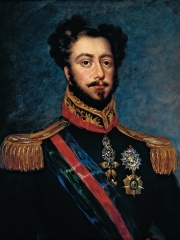
5. Pedro I of Brazil (1798 - 1834)
With an HPI of 76.94, Pedro I of Brazil is the 5th most famous Portuguese Politician. His biography has been translated into 72 different languages.
Dom Pedro I (12 October 1798 – 24 September 1834), known in Brazil and in Portugal as "the Liberator" (Portuguese: o Libertador) or "the Soldier King" (o Rei Soldado) in Portugal, was the founder and first ruler of the Empire of Brazil from 1822 to 1831 (under the name of Pedro I) and King of Portugal in 1826 (under the name of Pedro IV). Born in Lisbon, Pedro was the fourth child of King Dom John VI of Portugal and Queen Carlota Joaquina, and thus a member of the House of Braganza. When the country was invaded by French troops in 1807, he and his family fled to Portugal's largest and wealthiest colony, Brazil. The outbreak of the Liberal Revolution of 1820 in Lisbon compelled Pedro I's father to return to Portugal in April 1821, leaving him to rule Brazil as regent. He had to deal with challenges from revolutionaries and insubordination by Portuguese troops, all of which he subdued. The Portuguese government's threat to revoke the political autonomy that Brazil had enjoyed since 1808 was met with widespread discontent in Brazil. Pedro I chose the Brazilian side and declared Brazil's independence from Portugal on 7 September 1822. On 12 October, he was acclaimed Emperor and by March 1824 had defeated all armies loyal to Portugal. A few months later, Pedro I crushed the short-lived Confederation of the Equator, a failed secession attempt by provincial rebels in Brazil's northeast. A secessionist rebellion in the southern province of Cisplatina in early 1825, and the subsequent attempt by the United Provinces of the Río de la Plata to annex it, led the Empire into the Cisplatine War. In March 1826, Pedro I briefly became king of Portugal before abdicating in favor of his eldest daughter, Dona Maria II. The situation worsened in 1828 when the war in the south resulted in Brazil's loss of Cisplatina. During the same year in Lisbon, Maria II's throne was usurped by Prince Dom Miguel, Pedro I's younger brother. The Emperor's concurrent and scandalous sexual affair with Domitila de Castro tarnished his reputation. Other difficulties arose in the Brazilian parliament, where a struggle over whether the government would be chosen by the monarch or by the legislature dominated political debates from 1826 to 1831. Unable to deal with problems in both Brazil and Portugal simultaneously, on 7 April 1831 Pedro I abdicated in favor of his son Dom Pedro II, and sailed for Europe. Pedro I invaded Portugal at the head of an army in July 1832. Faced at first with what seemed a national civil war, he soon became involved in a wider conflict that enveloped the Iberian Peninsula in a struggle between proponents of liberalism and those seeking a return to absolutism. Pedro I died of tuberculosis in September 1834, just a few months after he and the liberals had emerged victorious. He was hailed by both contemporaries and posterity as a key figure who helped spread the liberal ideals that allowed Brazil and Portugal to move from absolutist regimes to representative forms of government.

6. John II of Portugal (1455 - 1495)
With an HPI of 75.96, John II of Portugal is the 6th most famous Portuguese Politician. His biography has been translated into 51 different languages.
John II (Portuguese: João II; [ʒuˈɐ̃w]; 3 May 1455 – 25 October 1495), called the Perfect Prince (Portuguese: o Príncipe Perfeito), was King of Portugal from 1481 until his death in 1495, and also for a brief time in 1477. He is known for reestablishing the power of the Portuguese monarchy, reinvigorating the economy of Portugal, and renewing the Portuguese exploration of Africa and Asia.

7. Sebastian of Portugal (1554 - 1578)
With an HPI of 75.82, Sebastian of Portugal is the 7th most famous Portuguese Politician. His biography has been translated into 51 different languages.
Sebastian (Portuguese: Sebastião I [sɨβɐʃˈti.ɐ̃w]; 20 January 1554 – 4 August 1578) was King of Portugal from 11 June 1557 to 4 August 1578 and the penultimate Portuguese monarch of the House of Aviz. He was the only child of João Manuel, Prince of Portugal, and Joanna of Austria. He was the grandson of King John III of Portugal and Catherine of Austria, Queen of Portugal. He disappeared (presumably killed in action) in the battle of Alcácer Quibir, against the Saadi Sultanate of Morocco. Sebastian I is often referred to as the Desired (Portuguese: o Desejado) or the Hidden (o Encoberto), as the Portuguese people longed for his return to end the decline of Portugal that began after his death. He is considered to be the Portuguese example of the King asleep in mountain legend as Portuguese tradition states his return, in a foggy dawn, in Portugal's greatest hour of need.

8. John I of Portugal (1358 - 1433)
With an HPI of 75.25, John I of Portugal is the 8th most famous Portuguese Politician. His biography has been translated into 54 different languages.
John I (Portuguese: João [ʒuˈɐ̃w̃]; 11 April 1357 – 14 August 1433), also called John of Aviz, was King of Portugal from 1385 until his death in 1433. He is recognized chiefly for his role in Portugal's victory in a succession war with Castile, preserving his country's independence and establishing the Aviz (or Joanine) dynasty on the Portuguese throne. His long reign of 48 years, the most extensive of all Portuguese monarchs, saw the beginning of Portugal's overseas expansion. John's well-remembered reign in his country earned him the epithet of Fond Memory (de Boa Memória).

9. John III of Portugal (1502 - 1557)
With an HPI of 74.77, John III of Portugal is the 9th most famous Portuguese Politician. His biography has been translated into 50 different languages.
John III (Portuguese: João III Portuguese pronunciation: [ʒuˈɐ̃w]; 6 June 1502 – 11 June 1557), nicknamed The Pious (Portuguese: o Piedoso), was the King of Portugal and the Algarve from 1521 until he died in 1557. He was the son of King Manuel I and Maria of Aragon, the third daughter of the Catholic Monarchs of Spain, Ferdinand II of Aragon and Isabella I of Castile. John succeeded his father in 1521 at the age of nineteen. During his rule, Portuguese possessions were extended in Asia and the Americas through the Portuguese colonization of Brazil. John III's policy of reinforcing Portugal's bases in India, such as Goa, secured Portugal's monopoly over the spice trade of cloves and nutmeg from the Maluku Islands. On the eve of his death in 1557, the Portuguese Empire had a global dimension and spanned almost 4 million square kilometres (1.5 million square miles). During his reign, the Portuguese became the first Europeans to contact Muromachi Japan. He abandoned Muslim territories in North Africa in favor of trade with India and investments in Brazil. In Europe, he improved relations with the Baltic region and the Rhineland, hoping that this would bolster Portuguese trade.

10. Afonso V of Portugal (1432 - 1481)
With an HPI of 74.40, Afonso V of Portugal is the 10th most famous Portuguese Politician. His biography has been translated into 48 different languages.
Afonso V (European Portuguese: [ɐˈfõsu]; 15 January 1432 – 28 August 1481), also known as the African (Portuguese: o Africano), was King of Portugal from 1438 until he died in 1481, with a brief interruption in 1477. The son of Edward, King of Portugal, and Eleanor of Aragon, Afonso acceded to the throne when he was only six years old. His early reign was marked by a struggle over the regency between his mother, Eleanor, and his uncle, Pedro, Duke of Coimbra. Pedro was appointed sole regent in 1439, but the Braganza faction at court continued to challenge his authority. Influenced by his other uncle, Afonso I, Duke of Braganza, the King dismissed Pedro in 1448 and defeated him in the Battle of Alfarrobeira in 1449. Between 1458 and 1471, Afonso pursued military campaigns in Africa, concentrating efforts predominantly on Morocco. His successful conquests of Alcácer-Ceguer, Arzila, and Tangiers earned him the sobriquet O Africano. Following the death of Henry IV of Castile in 1474, Afonso claimed the throne of Castile on behalf of his niece, Joanna la Beltraneja. In May 1475, he led an army into Palencia, wed Joanna, and proclaimed himself sovereign of Castile, instigating the War of the Castilian Succession. After the disappointing Battle of Toro and failed attempts at securing support from France, Afonso abdicated the Portuguese throne to embark on a pilgrimage to Jerusalem. He was persuaded to return to Portugal and reassume the crown in November 1477, just days after his heir, John, was declared king. In the last years of Afonso's reign, the administration of the kingdom was largely directed by John. The Treaty of Alcáçovas, in which Afonso's claim to the throne of Castile was renounced in exchange for Portuguese hegemony in the Atlantic south of the Canary Islands, was signed in 1479. The King died in 1481 and was succeeded by John.
People
Pantheon has 132 people classified as Portuguese politicians born between 180 BC and 1983. Of these 132, 22 (16.67%) of them are still alive today. The most famous living Portuguese politicians include António Guterres, Marcelo Rebelo de Sousa, and José Manuel Barroso. The most famous deceased Portuguese politicians include António de Oliveira Salazar, Manuel I of Portugal, and Afonso I of Portugal. As of April 2024, 3 new Portuguese politicians have been added to Pantheon including Luís Montenegro, André Ventura, and Maria Luís Albuquerque.
Living Portuguese Politicians
Go to all RankingsAntónio Guterres
1949 - Present
HPI: 79.33
Marcelo Rebelo de Sousa
1948 - Present
HPI: 74.29
José Manuel Barroso
1956 - Present
HPI: 72.82
Aníbal Cavaco Silva
1939 - Present
HPI: 72.79
António Costa
1961 - Present
HPI: 71.73
António Lobo Antunes
1942 - Present
HPI: 67.36
António Ramalho Eanes
1935 - Present
HPI: 65.56
José Sócrates
1957 - Present
HPI: 64.02
Jesualdo Ferreira
1946 - Present
HPI: 63.36
Luís Montenegro
1973 - Present
HPI: 60.20
Pedro Passos Coelho
1964 - Present
HPI: 58.26
Pedro Santana Lopes
1956 - Present
HPI: 56.57
Deceased Portuguese Politicians
Go to all RankingsAntónio de Oliveira Salazar
1889 - 1970
HPI: 81.59
Manuel I of Portugal
1469 - 1521
HPI: 77.70
Afonso I of Portugal
1109 - 1185
HPI: 77.46
Pedro I of Brazil
1798 - 1834
HPI: 76.94
John II of Portugal
1455 - 1495
HPI: 75.96
Sebastian of Portugal
1554 - 1578
HPI: 75.82
John I of Portugal
1358 - 1433
HPI: 75.25
John III of Portugal
1502 - 1557
HPI: 74.77
Afonso V of Portugal
1432 - 1481
HPI: 74.40
Peter I of Portugal
1320 - 1367
HPI: 74.36
Manuel II of Portugal
1889 - 1932
HPI: 73.93
John VI of Portugal
1767 - 1826
HPI: 73.87
Newly Added Portuguese Politicians (2025)
Go to all RankingsLuís Montenegro
1973 - Present
HPI: 60.20
André Ventura
1983 - Present
HPI: 49.62
Maria Luís Albuquerque
1967 - Present
HPI: 48.85
Overlapping Lives
Which Politicians were alive at the same time? This visualization shows the lifespans of the 25 most globally memorable Politicians since 1700.

